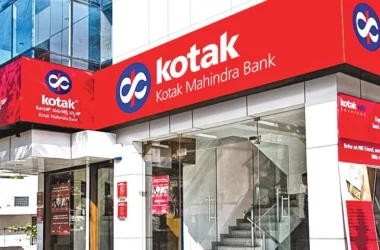
Clear (formerly ClearTax) has launched its invoice registration portal (IRP) for generating e-invoices under the goods and services tax (GST) for companies across India. Previously, businesses could only generate e-invoices on the NIC portal. However, the GST Council had recommended e-invoice registration services through private IRPs earlier this year, and GSTN had empaneled four private companies, including Clear, Cygnet, E&Y, and IRIS Business Ltd. Clear is the first private IRP provider to launch its services. The government expects a large number of electronic invoices to be generated through private IRPs, and the GSTN hopes that Clear will build a system with functionality that can serve businesses of all sizes.
According to Clear, its infrastructure will simplify the operational challenges and make tax compliance seamless for taxpayers. Archit Gupta, the founder and CEO of Clear, said that this digital infrastructure would be affordable, scalable, modern, secure, and pervasive. He also added that these digital innovations would facilitate ease of business and fuel innovation at both the individual and the company level.
Companies and other taxpayers with an annual turnover of over Rs 10 crore are required to generate e-invoices for B2B transactions. The e-invoice system is for uploading all B2B invoices to the IRP. The IRP then generates and returns a unique Invoice Reference Number (IRN), digitally signed e-invoice, and QR code to the user. The e-invoice system aims to make invoicing more convenient for taxpayers, reduce the scope for errors, and make tax compliance easier.
Clear’s launch of its IRP services is expected to increase competition among IRP providers, giving taxpayers a wider range of options to choose from. The launch also marks a shift towards more digital innovations in tax compliance and invoicing, as businesses look for more efficient ways to manage their financial transactions.
The government has been pushing for greater adoption of digital technologies to increase tax compliance and reduce fraud in the tax system. The introduction of e-invoicing is a significant step towards this goal, and the government hopes that more businesses will adopt this system in the coming years. The GSTN has also been working on introducing other digital services to improve tax compliance, including the e-way bill system, which requires businesses to generate an electronic bill for transporting goods worth more than Rs 50,000.
Overall, the launch of Clear’s IRP services is a positive step towards greater digitization of tax compliance in India. As more businesses adopt e-invoicing, it is expected to reduce the burden of tax compliance and increase the efficiency of the invoicing process. This, in turn, is likely to have a positive impact on businesses, as they will be able to focus on their core operations rather than spending time and resources on tax compliance.









